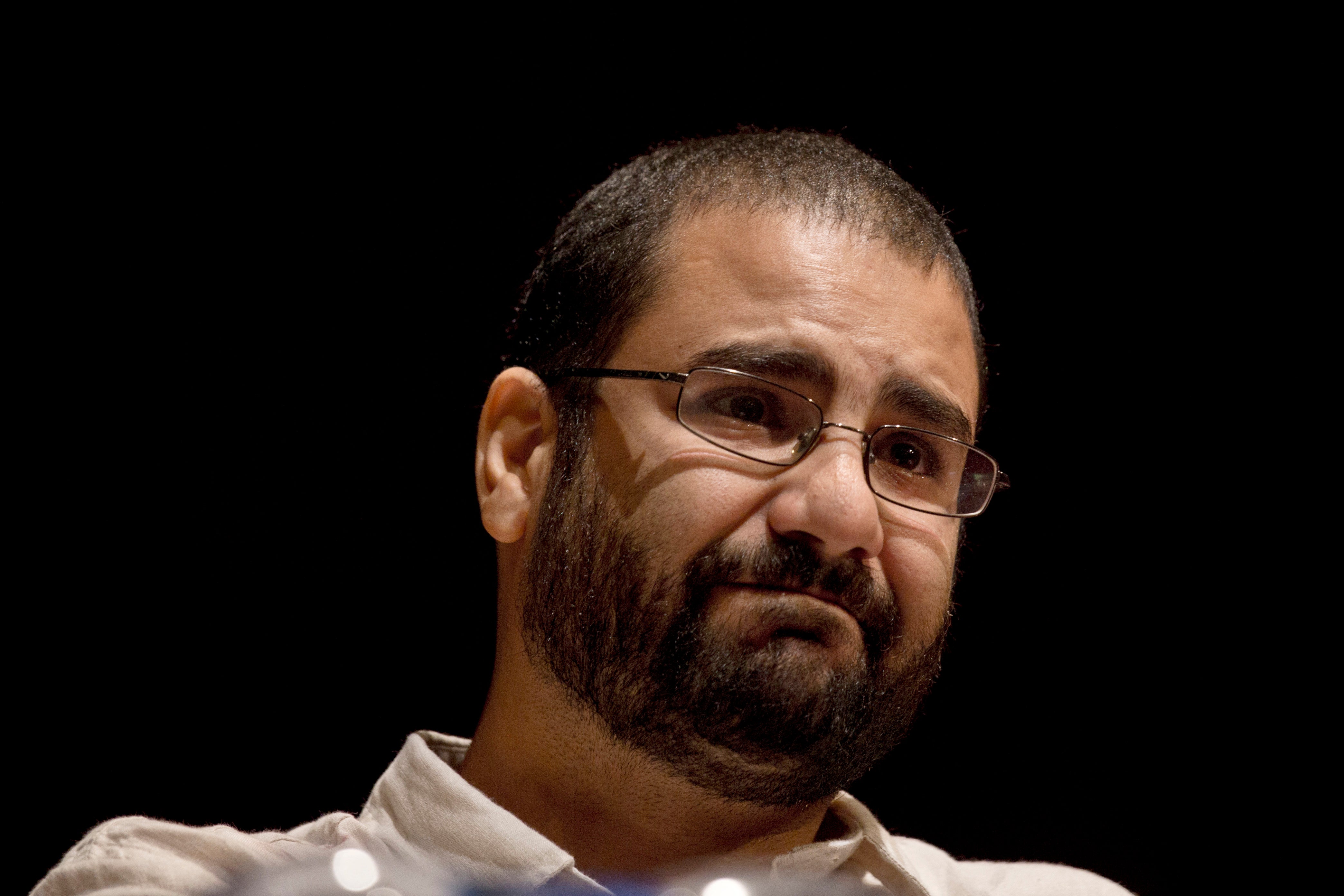Egypt adds leading activist, politician to terror watch list
Egypt's official journal reports that an Egyptian court has placed nearly 30 people, including a leading pro-democracy activist and an Islamist politician, on a terrorism watch list over accusations they joined the banned Muslim Brotherhood

An Egyptian court placed nearly 30 people, including a leading pro-democracy activist and an Islamist politician on a terrorism watch list over accusations they joined the banned Muslim Brotherhood the official gazette reported Monday.
Activist Alaa Abdel-Fattah, politician Abdel-Monaem Abul Fetouh and 26 others were added to a “terrorism list” for the next five years, the report said.
The ruling by Judge Hassan Farid last week includes a travel ban and freeze on assets for three years. The decision may be appealed within 60 days.
Abdel-Fattah rose to prominence with the 2011 pro-democracy uprisings that swept the Middle East and in Egypt toppled long-time President Hosni Mubarak. To many, his imprisonment three years later — at a time when authorities imposed draconian laws banning public gatherings and unauthorized demonstrations — was a sign of Egypt’s return to autocratic rule.
Abdel-Fattah was released in March 2019 after five years in prison for taking part in a peaceful protest against military trials for civilians. He was re-arrested in September last year amid a sweeping security clampdown that followed small but rare anti-government protests.
Abul Fetouh, the Islamist politician, was a longtime Brotherhood member but quit the group in 2011 and established the Strong Egypt party. He ran for president in 2012 when Brotherhood member Mohammed Morsi won.
Morsi’s rule proved divisive and a year later the military overthrew him and launched a crackdown on his supporters. Since then, pro-government media have insisted Abul Fetouh’s true sympathies are still with the Brotherhood, which has been designated a terrorist organization.
Authorities arrested Abul Fetouh in February 2018, shortly after his return from a trip to London and ahead of the re-election of President Abdel Fattah el-Sissi for a second term.
Others added to the list were Mohammed el-Kassas, deputy head of Abul Fetouh’s party, who was arrested in 2018; rights lawyer Mohammed el-Baker, who was arrested in Sep. 2019 while attending the questioning of Abdel-Fattah by prosecutors, and El-Hassan el-Shater, son of Khairat el-Shater, long seen as the Brotherhood’s most powerful leader.
Egypt’s government under el-Sissi, a general-turned-president, has overseen the heaviest crackdown on dissent in the country’s modern history. Officials have targeted not only Islamist political opponents but also pro-democracy activists, journalists and online critics.
Earlier this month, authorities arrested three senior staff members of the Egyptian Initiative for Personal Rights, one of the country’s most prominent human rights groups, a move that sparked sharp criticism from Western governments and the U.N. human rights office.
The arrests came after ambassadors and senior diplomats from 13 Western countries met with EIPR earlier this month for talks that the group said “discussed ways to improve human rights conditions in Egypt.”
Prosecutors on Monday questioned Gasser Abdel Razek, a veteran human rights advocate and the EIPR executive director, the group said.